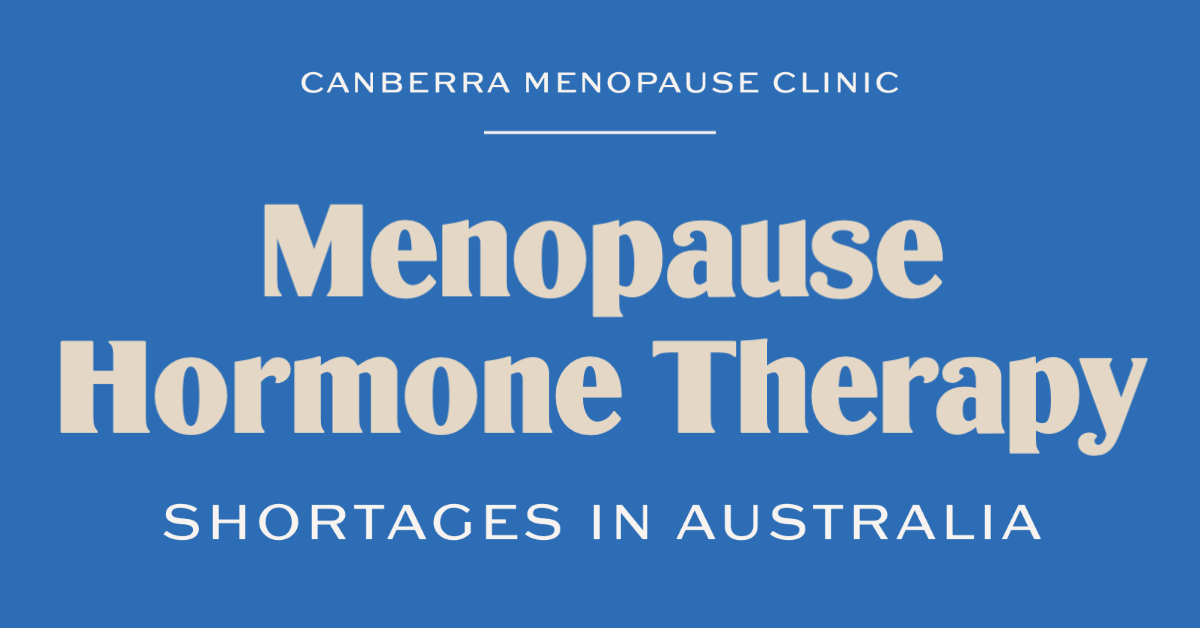
Menopause Hormone Therapy shortages in Australia
There has been a recent shortage of some menopause hormone therapy (MHT) preparations in Australia in 2020.
Many of these shortages have now been resolved or should be resolved by early to mid-2021.
It is advised that you visit your doctor/GP well before your prescription expires to ensure that you are not left without the preparation you need. Should the preparation you need not be available your doctor will be able to supply a substitute until the shortage of your regular preparation is resolved.
The Australasian Menopause Society provides information on appropriate substitution products:
You may also wish to talk to your pharmacist to see which substitution product they do have available before visiting your GP.




 Thinking of menopausal hormone therapy?
Thinking of menopausal hormone therapy?